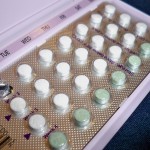Over half of postmenopausal women experience vulvovaginal atrophy, but the issue is rarely raised in consultations
More than half of postmenopausal women experience vulvovaginal atrophy, but the issue is rarely raised in consultations.
Women are often embarrassed or do not think there are treatment options, says Dr Yasmin Tan, a gynaecologist and laparoscopic surgeon at the Royal Hospital for Women in Sydney.
Only 19% of healthcare professionals addressed their patients’ sexual lives, and only 13% specifically raised the issue of genitourinary symptoms, the 2013 REVIVE survey found.
Yet treatment is simple, safe and can transform quality of life, says Dr Tan.
[media_embed] https://player.vimeo.com/video/173572200[/media_embed]
Vulvovaginal atrophy (or genitourinary syndrome of menopause) is the thinning, drying and inflammation of the vaginal walls or genitourinary tract due to low or reduced estrogen.
It can affect women during menopause or women undergoing cancer treatment.
“We need to be asking women about vaginal symptoms, so dryness, burning, itch, discharge, bleeding,” says Dr Tan.
“Any bleeding in the postmenopausal woman does need to be further investigated. And discomfort during intercourse. Let’s not forget the bladder symptoms, urgency, nocturia, dysuria, incontinence and recurrent UTIs.”





